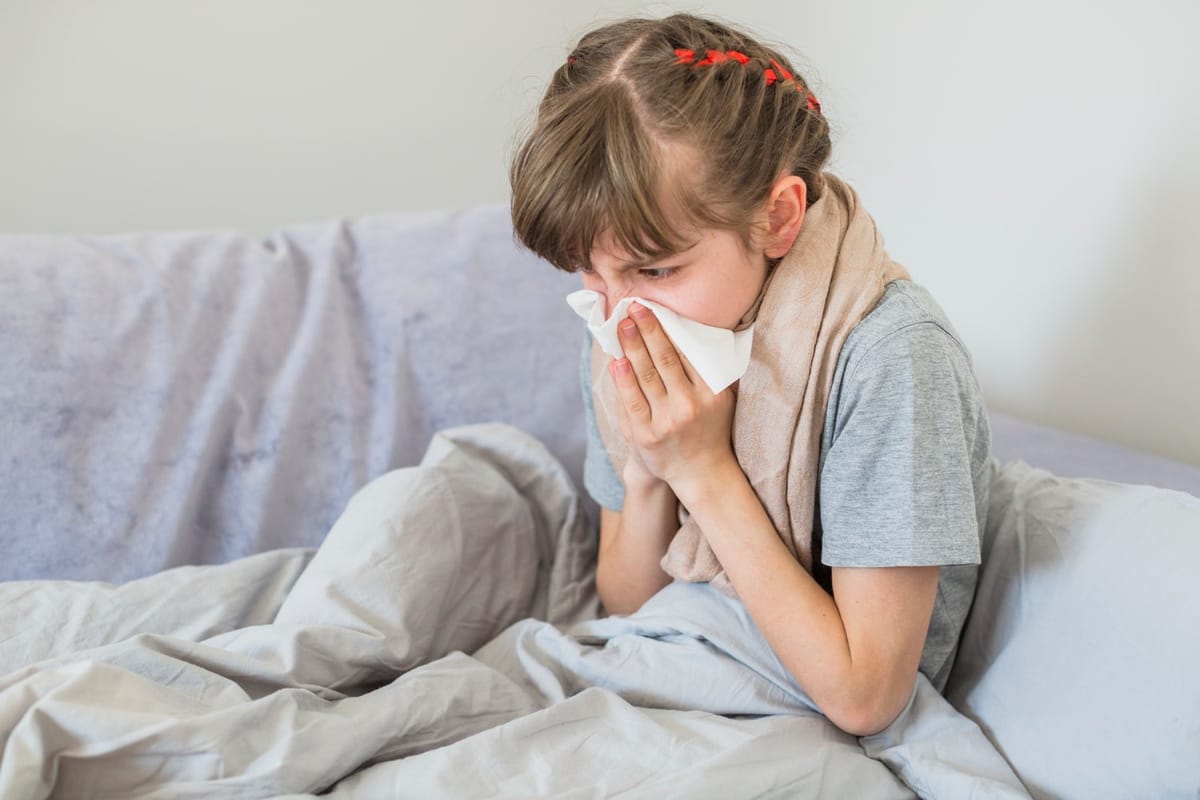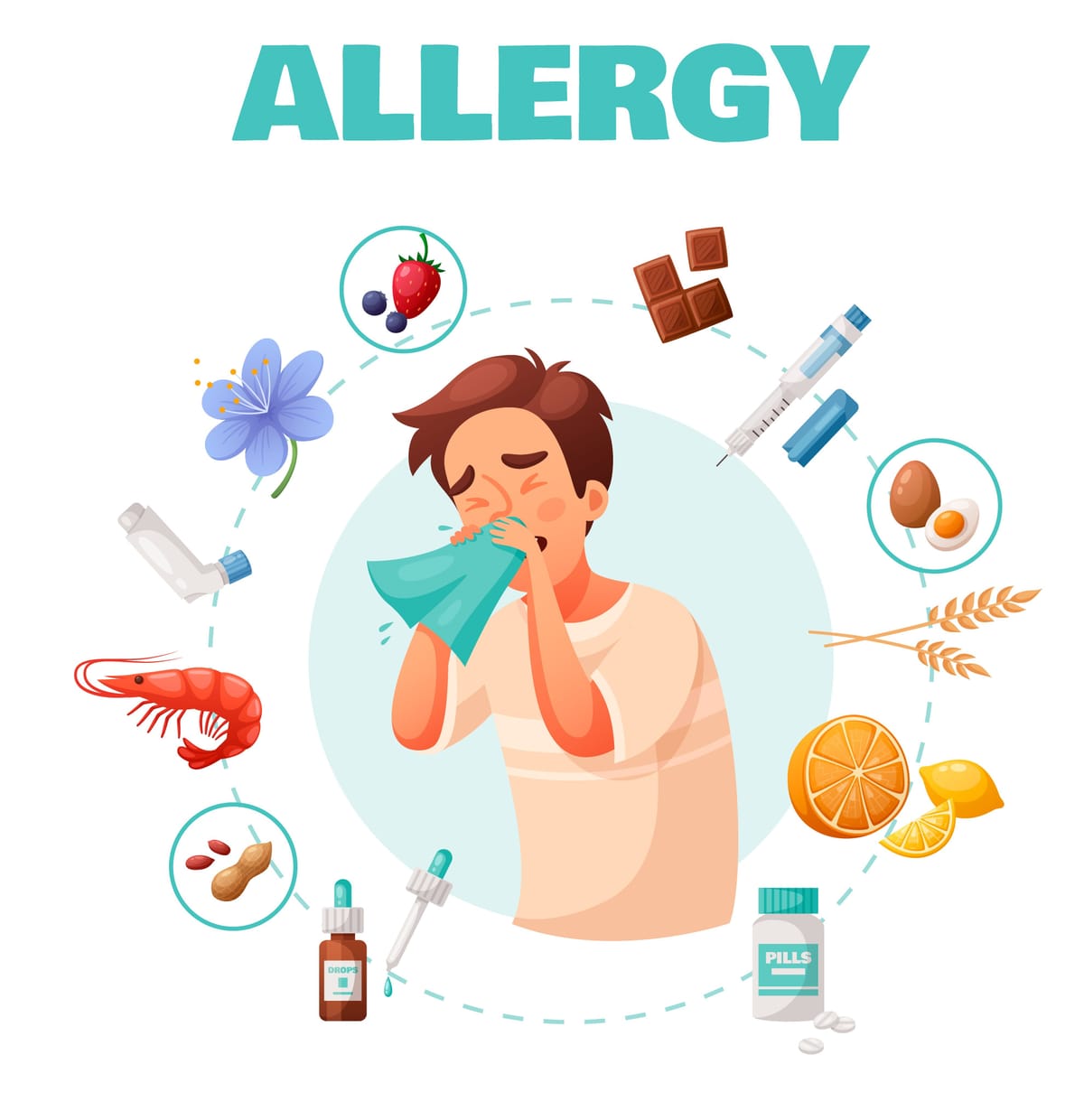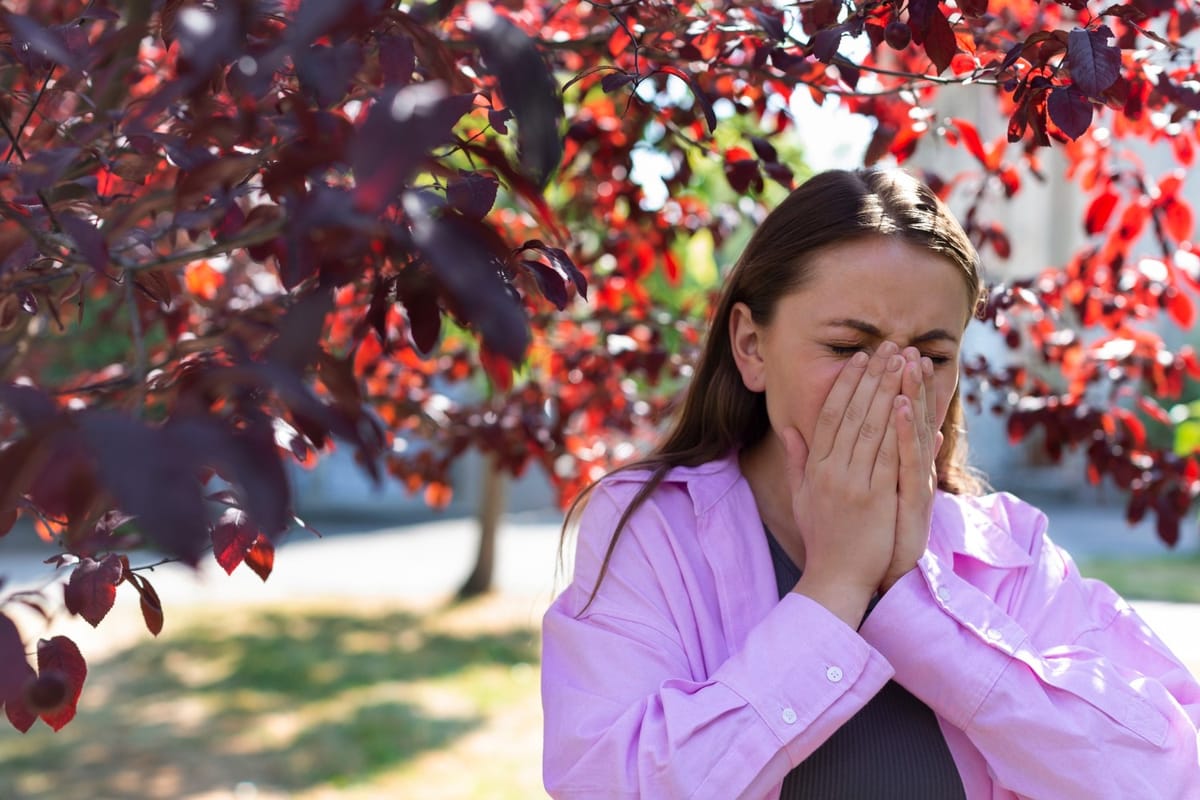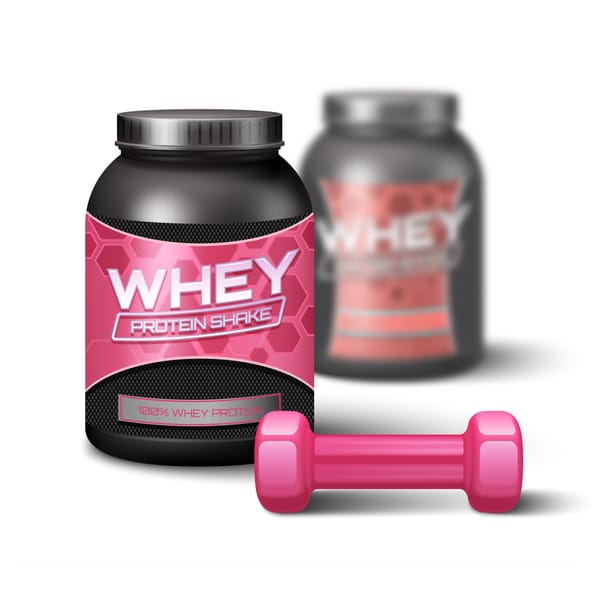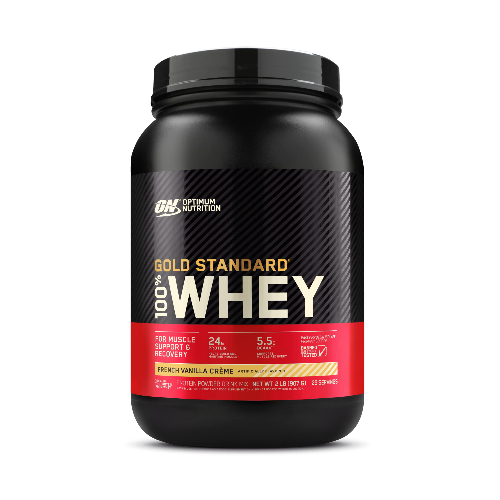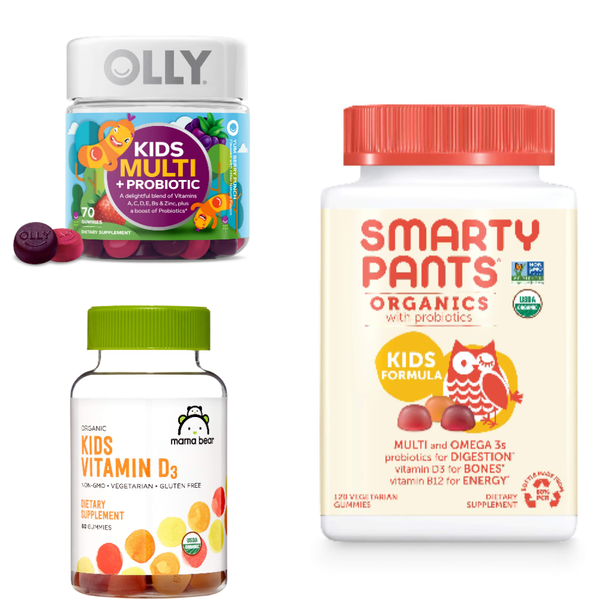Seasonal allergies, often known as hay fever or seasonal allergic rhinitis, can turn the most beautiful times of the year into periods of misery for many. As trees, grasses, and weeds release pollen into the air to fertilize other plants, millions of people with allergies start to sniffle and sneeze. If you're one of them, you're likely on the hunt for effective ways to ease symptoms and enjoy your days, regardless of the pollen counts.
Recognizing the Enemy: Common Seasonal Allergy Triggers
The first step in battling seasonal allergies is to know what you're up against. Tree pollen, grass pollen, and ragweed pollen are the most common airborne allergens during various allergy seasons. Indoor allergens like dust mites and pet dander can also contribute to making symptoms worse. Identifying these triggers through allergy tests can help you proactively avoid pollen and other allergens.
When Allergies Strike: Understanding Allergy Symptoms
Allergy symptoms can range from a runny nose and itchy eyes to a stuffy nose and watery eyes. These reactions are caused by your immune system's response to allergens. Recognizing these symptoms early on is crucial for starting treatment and preventing them from escalating into more severe complications.
The Role of Allergy Tests
Allergy tests, whether a skin prick test or a blood test, can pinpoint the specific allergens that trigger your reactions. Knowing exactly what you're allergic to can help you and your primary care doctor or a clinical immunologist develop a personalized plan to treat seasonal allergies effectively.
Start Early: When to Begin Allergy Medications
One key strategy is to start taking allergy medications before the pollen levels peak. This can help keep your nasal passages clear and your immune system from overreacting. Over-the-counter options like oral antihistamines and nasal steroid sprays can be quite effective.
Medical Interventions: Allergy Shots and Medications
Allergy shots, also known as allergen immunotherapy, can gradually desensitize your immune system to specific allergens. Additionally, a variety of allergy medicine options are available, including oral decongestants and nasal sprays, to help relieve congestion and other allergy symptoms.
Navigating Allergy Season with Smart Planning
As allergy season rolls in with the blooming of early summer flowers and the dispersal of weed pollen, it's crucial to have a game plan. Did you know that by simply keeping an eye on the pollen count through local weather channels or apps, you can better prepare for days when environmental allergies are at their peak? It's all about timing—on days with high pollen counts, try to stay indoors where it's safer for your sinuses.
Moreover, consider adjusting your daily routine during peak allergy season. If you're an outdoor enthusiast, opt for activities in the late afternoon or after a rain, when pollen levels tend to be lower. For those with bad allergies, it's wise to plan your errands and outdoor workouts accordingly. Remember, smart planning can make a significant difference in how you experience early fall or late summer when allergens are rampant.
Combating Hay Fever Symptoms with Over-the-Counter Solutions
When the trees start to bud and the flowers bloom, it's not just the beauty of nature that comes alive; for many, it's the onset of hay fever symptoms that can dampen the spring spirit. Over-the-counter (OTC) medications can be a first line of defense against the sneezing, itchy eyes, and runny nose that accompany seasonal allergies. Antihistamines, decongestants, and nasal corticosteroids are readily available and can provide quick relief. It's important to read labels and understand the potential side effects, as some antihistamines can cause drowsiness.
Moreover, not all OTC solutions are created equal, and what works for one person might not work for another. It's a good idea to keep track of your symptoms and how they respond to different medications. For instance, nasal sprays might be more effective for congestion, while eye drops could be the go-to for itchy, watery eyes. Consulting with a pharmacist can also guide you to the most appropriate OTC remedies. Remember, these medications are meant to manage symptoms, so consider them part of a broader allergy management strategy.
Embracing the Outdoors: Tips for Allergy-Prone Adventurers
When the allure of the great outdoors beckons, don't let the fear of seasonal allergies keep you cooped up inside. It's all about being proactive and prepared. Before stepping out, check the pollen count using a reliable weather app or website. Dressing appropriately can also be a game-changer—think sunglasses to shield your eyes from airborne allergens and a hat to prevent pollen from latching onto your hair. And hey, it's not just about looking good; it's about feeling good too!
Now, if you're planning a longer excursion, consider packing some over-the-counter allies. Antihistamines can be your best friend when it comes to nipping those pesky allergy symptoms in the bud. But remember, timing is everything. Taking them before exposure can help keep your immune system from going into red alert mode. And don't forget to stay hydrated! So, fill up that water bottle and embrace the adventure ahead!
Understanding Over-the-Counter Allergy Relief
When it comes to managing seasonal allergies, over-the-counter (OTC) medications can be a game-changer. These readily available remedies offer quick relief for sneezing, itching, and runny noses without the need for a prescription. Antihistamines, decongestants, and nasal corticosteroids are the most common types of OTC allergy medications. Antihistamines work by blocking the effects of histamine, the substance that causes many allergy symptoms, while decongestants help to relieve nasal congestion.
However, it's important to choose the right OTC medication for your specific symptoms. For instance, a decongestant might be your best bet if you're dealing with nasal congestion. On the other hand, if itchy eyes are your main concern, eye drops designed for allergy relief can be incredibly effective. Always read the labels carefully and consider consulting with a pharmacist to ensure you're selecting the most appropriate treatment for your needs.
The Pros and Cons of Over-the-Counter Allergy Medications
While over-the-counter allergy medications are convenient and effective for many, they are not without their drawbacks. One of the biggest concerns is the potential for side effects, such as drowsiness or dry mouth, particularly with older antihistamines. Newer, non-sedating antihistamines have been developed to address this issue, allowing for relief without drowsiness. It's also crucial to be aware of any potential interactions with other medications you may be taking.
Moreover, overuse of certain OTC allergy medications, like nasal decongestant sprays, can lead to a rebound effect, where the nasal passages become more congested once the medication wears off. This is why it's essential to follow the recommended usage instructions and to speak with a healthcare professional if you find yourself relying on OTC medications for an extended period. They can help you develop a more sustainable long-term allergy management plan.
Allergy-Proofing Your Workspace: A Breath of Fresh Air
Transforming your workspace into an allergy-friendly zone can make a world of difference in your daily comfort and productivity. Start by declaring war on dust—regularly clean your desk, keyboard, and those often-forgotten nooks and crannies. Investing in an air purifier with a HEPA filter can also help capture airborne particles, including pollen, ensuring you're breathing cleaner air. And don't underestimate the power of plants; some can naturally purify the air, adding a touch of greenery and tranquility to your work haven.
But what happens when despite your best efforts, allergies still strike during work hours? Keep a stash of over-the-counter remedies in your desk drawer. Decongestants can relieve stuffy noses, while eye drops can soothe itchy, watery eyes. Just be mindful of any drowsiness side effects—opt for non-drowsy formulas to keep you sharp and focused. By tailoring your workspace to be allergy-resistant, you're setting the stage for a more comfortable and productive work life, no matter the season.
The Allergy-Friendly Toolkit: Must-Haves for Seasonal Sufferers
Creating an allergy-friendly toolkit can be a game-changer for those battling seasonal allergies. This personalized kit should include a variety of over-the-counter products tailored to your specific hay fever symptoms. For example, having antihistamines on hand can help combat sudden flare-ups, while saline nasal sprays can soothe irritated nasal passages. It's also wise to include hypoallergenic tissues and a small bottle of hand sanitizer to keep germs at bay when you're on the go.
In addition to medications, your toolkit might also contain non-medical items. A pair of sunglasses can shield your eyes from pollen when outdoors, and a hat can prevent pollen from getting trapped in your hair. For those particularly sensitive days, consider packing a face mask to filter out allergens. By preparing your allergy-friendly toolkit, you're equipping yourself with the necessary defenses to tackle hay fever head-on, ensuring that you can enjoy the season with minimal disruption.
Creating an Allergy-Safe Haven at Home
Your home should be your sanctuary, especially during the throes of allergy season. One of the most effective ways to relieve nasal congestion and reduce exposure to common allergens is by using a high-efficiency particulate air (HEPA) filter in your air conditioner. These filters are designed to trap fine particles such as pollen, dust, and pet dander, ensuring that the air you breathe indoors is much cleaner.
In addition to a HEPA filter, consider other measures to maintain an allergy-safe environment. Keep windows closed during high pollen days to prevent allergens from entering your home. Regularly wash bedding, curtains, and any fabric that can harbor allergens. For those with particularly bad allergies, it might be worth investing in over-the-counter products like mattress protectors and pillow covers designed to keep allergens at bay. With these strategies, your home can become a true respite from the relentless pollen assault of early summer and early fall.
The Power of Prevention: Avoiding Pollen Exposure
To reduce symptoms, it's essential to avoid pollen as much as possible. Stay indoors on high pollen days, use air conditioning with a HEPA filter, and keep windows closed during high pollen times of the year. Monitoring pollen counts can help you plan your activities accordingly.
Home Remedies: Natural Ways to Ease Symptoms
Natural remedies can complement medical treatments to ease symptoms. Using a neti pot or sinus rinses can clear nasal passages while adding vitamin C to your diet might bolster your overall health. Some people find relief with alternative treatments like acupuncture or herbal supplements.
The Impact of Lifestyle Changes
Simple lifestyle changes can make a big difference. Using a vacuum cleaner with a HEPA filter, cleaning with baking soda, and washing bedding regularly can minimize exposure to indoor allergens like dust mites and pet dander.
The Role of Diet in Managing Allergies
What you eat can influence your body's reaction to allergens. Foods rich in omega-3 fatty acids, antioxidants, and other anti-inflammatory compounds can support your immune system and potentially reduce allergy symptoms.
Technology to the Rescue: Apps and Gadgets
There are now apps available that can alert you to high pollen days and times of the year when certain allergens are at their peak. Gadgets like air purifiers with HEPA filters can also help keep indoor air free of pollen and other allergens.
When to See a Doctor
If your allergy symptoms are severe or over-the-counter medications aren't providing relief, it's time to see a primary care doctor or a specialist in clinical immunology. They can offer more targeted treatments, such as prescription medications or immunotherapy.
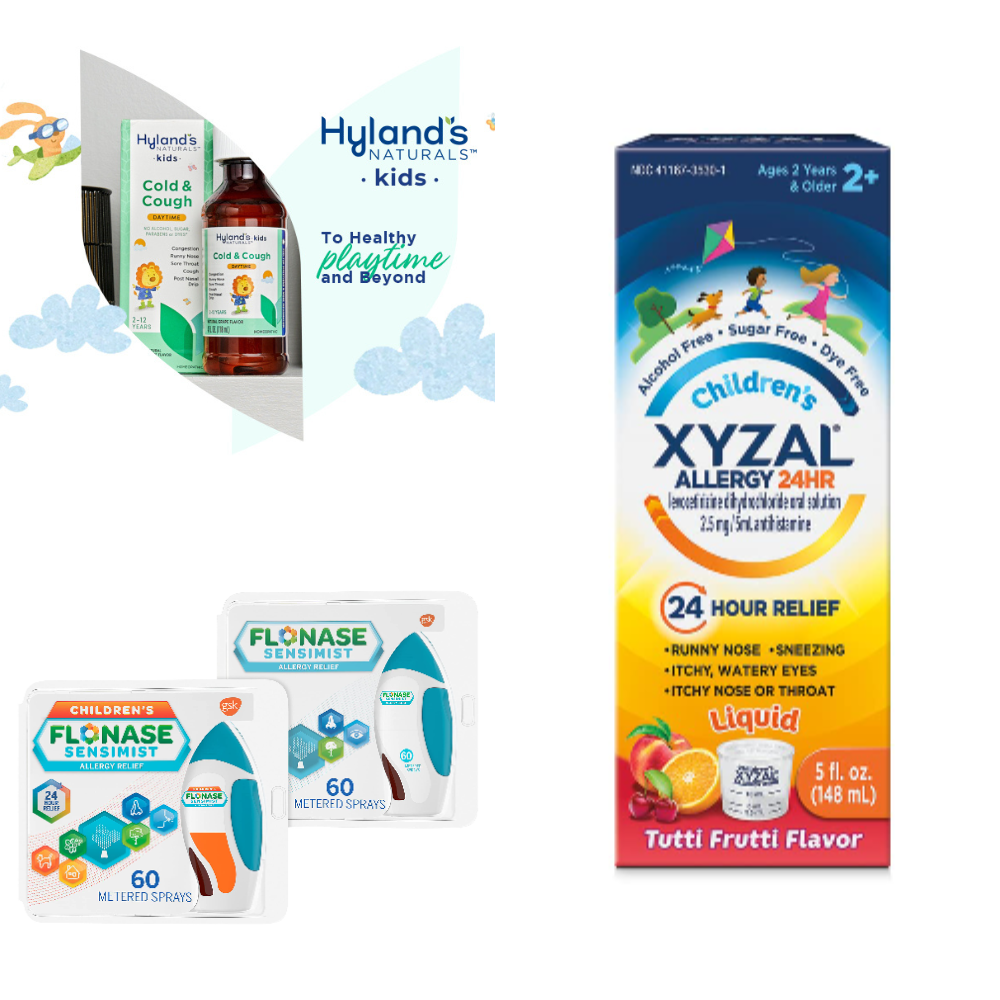

How can I tell if I have seasonal allergies or just a common cold?
Seasonal allergies often present with a runny nose, itchy and watery eyes, and sneezing without the fever and body aches typically associated with a cold. Allergy symptoms also tend to persist longer than the common cold, often for weeks or as long as the allergen is present.
Are there any natural remedies for seasonal allergies that actually work?
Yes, some natural remedies can help alleviate allergy symptoms. For example, saline nasal rinses can clear allergens from the nasal passages, and honey (particularly local honey) may help your immune system become more accustomed to local pollen. However, it's important to consult with a healthcare provider before trying new remedies.
Can seasonal allergies develop later in life, or do you have to be born with them?
It's possible to develop seasonal allergies at any age. Some people may not experience allergies during childhood but can develop them as adults due to changes in their environment or immune system.

Seasonal allergies can be a significant hindrance to enjoying the beauty of nature's cycles, but they don't have to control your life. By understanding common triggers, starting allergy medications early, and incorporating both medical and natural remedies, you can effectively manage and reduce symptoms. Regularly consulting with healthcare professionals can also ensure that your approach to treating seasonal allergies is tailored to your specific needs.


